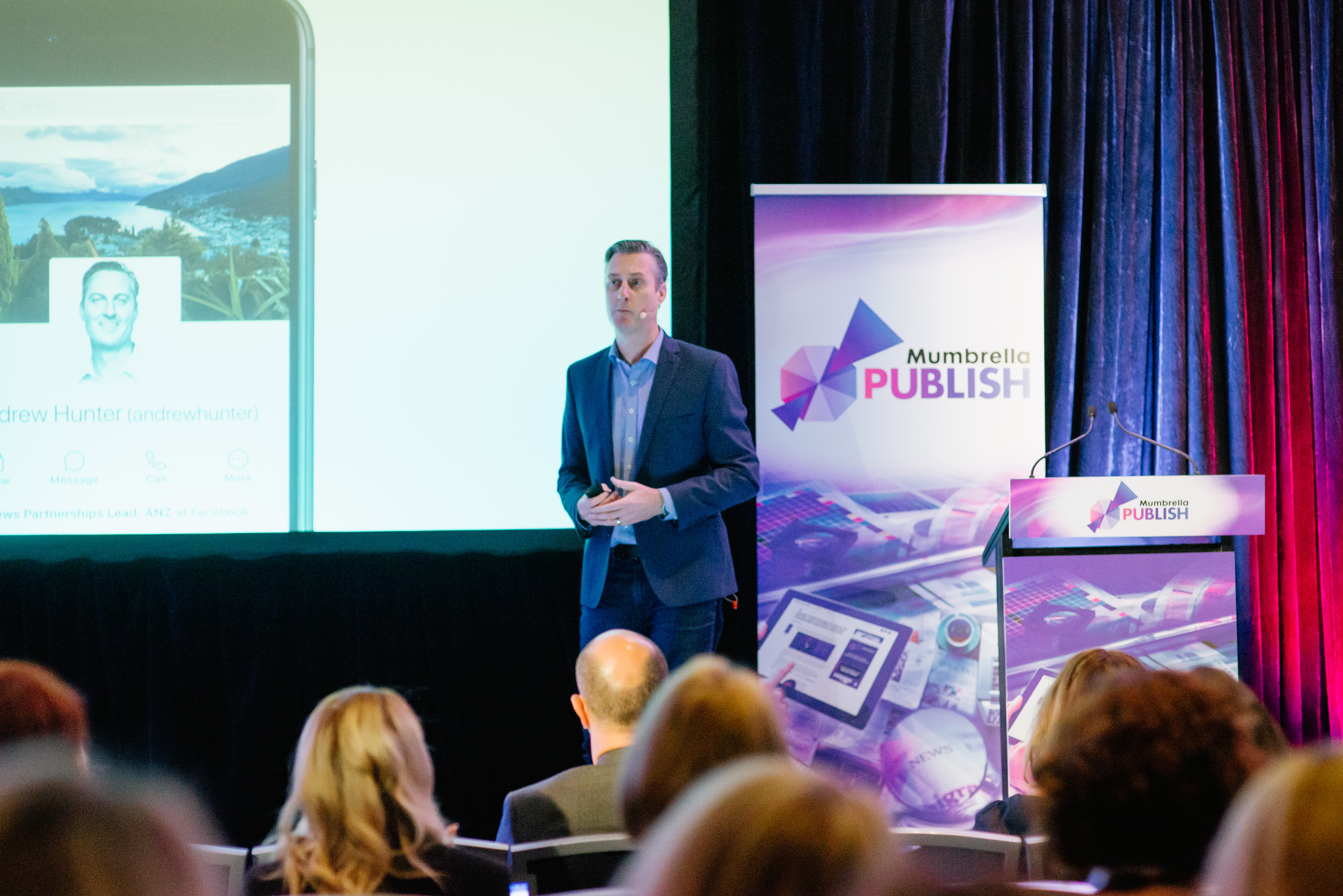Facebook: We don’t encourage publishers to build their brands off our platform
Facebook has told a room full of publishers that it doesn’t make sense for them to build their businesses off the platform and insisted that it never encouraged the practice.
When pushed by Mumbrella on whether Facebook was rewriting its narrative in the wake of changes to its algorithm which deprioritised publishers’ content in users’ news feeds, the company’s news partnership lead Andrew Hunter said he’d never seen evidence of Facebook peddling its wares in this way.


